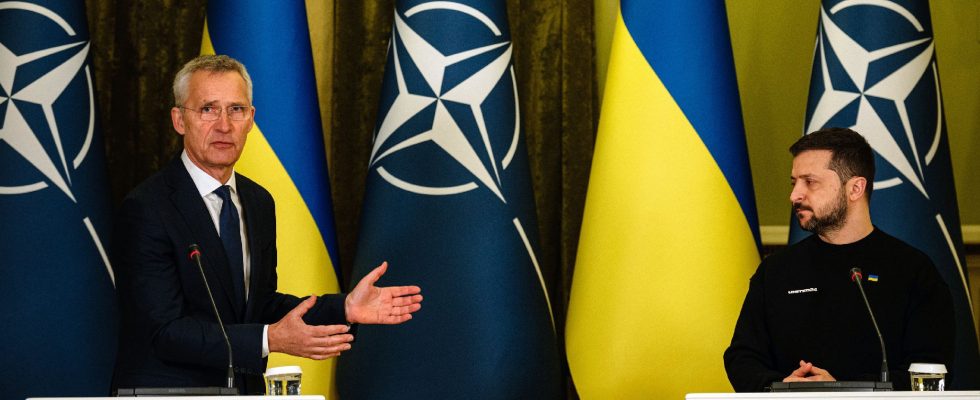Will come ? Will not come? Among the unknowns of the NATO summit in Vilnius, on July 11 and 12, is the arrival of Volodymyr Zelensky. The Ukrainian president, who aspires to have his country join the Common Defense Organization, has made it known that he will not be traveling for nothing. Of course, he knows that his country’s membership is not an immediate possibility. Under Article 5 of the Treaty – “One for all and all for one!” he stipulates in essence – this would amount to bringing NATO into the side of Ukraine in the war with Russia. But what Zelensky does not want is to hear the vague declarations of the Bucharest summit in 2008 repeated. The then allies had taken note of the aspirations of Georgia and Ukraine, and admitted that these countries would join NATO “one day”. Just words…
Today, Ukraine needs perspectives. NATO too, for that matter. The Organization must define objectives, draw up a roadmap and set a schedule of meetings that allows it to project itself into the concrete. “This requires strong and clear statements, points out Federico Castiglioni, of the Italian think tank Istituto Affari Internazionali. And this could include the creation of a NATO-Ukraine Council which would work for Kyiv’s membership.” Such a working group would (symbolically) refer to the short-lived NATO-Russia Council created in 2002 at the instigation of George W. Bush and two friends of Putin: Silvio Berlusconi and Gerhard Schröder.
“The main issue of the summit is to send a message of deterrence to convince the Kremlin that its mad adventure in Ukraine will cost it dear; that its attempt to weaken NATO and the EU is having the opposite effect and that its long-term hope of seeing Westerners grow weary of war is vain,” remarks Rym Momtaz of the International Institute for Strategic Studies.
The Baltic States, Poland as well as Emmanuel Macron and others know that NATO membership will constitute, after the war, the only real guarantee of security likely to protect Ukraine in the long term. The proof ? So far, Russia has not dared to touch the Alliance, leaving the logistical supply lines running through Poland to function. As Estonian MP Marko Mihkelson told L’Express: “The Russians are hostile to NATO, but they respect it.” Because they fear her.
